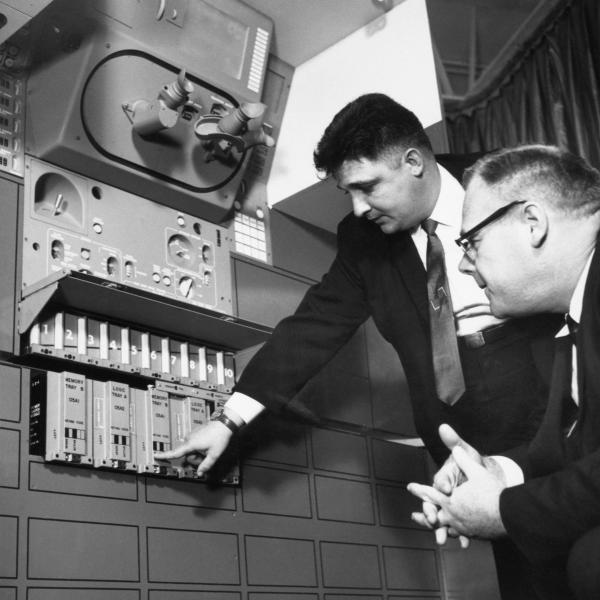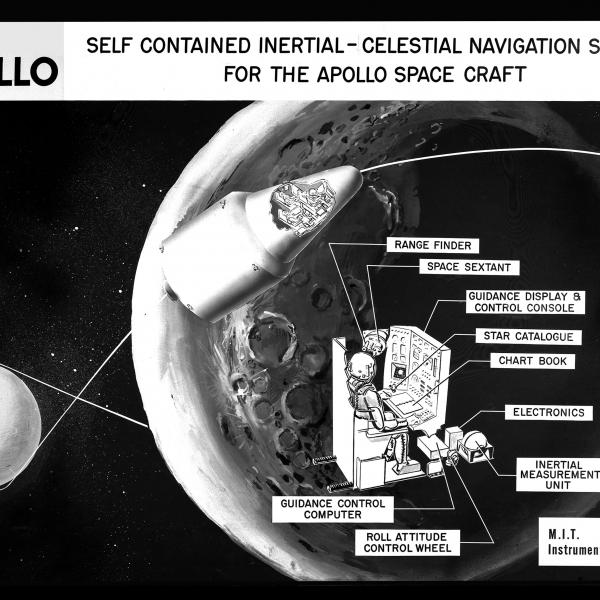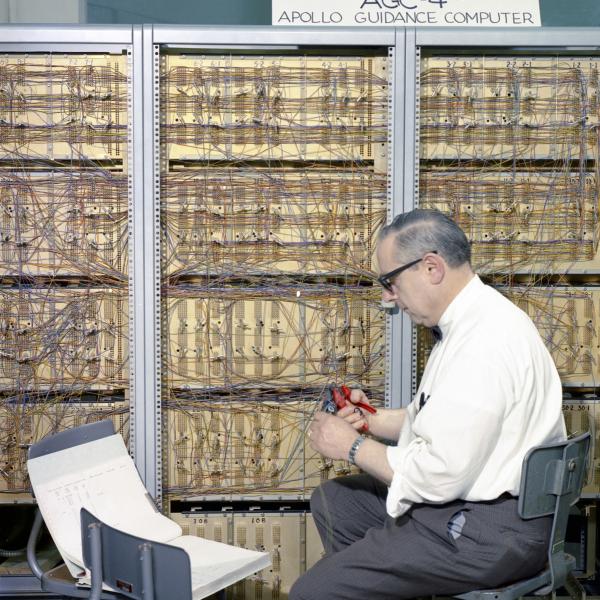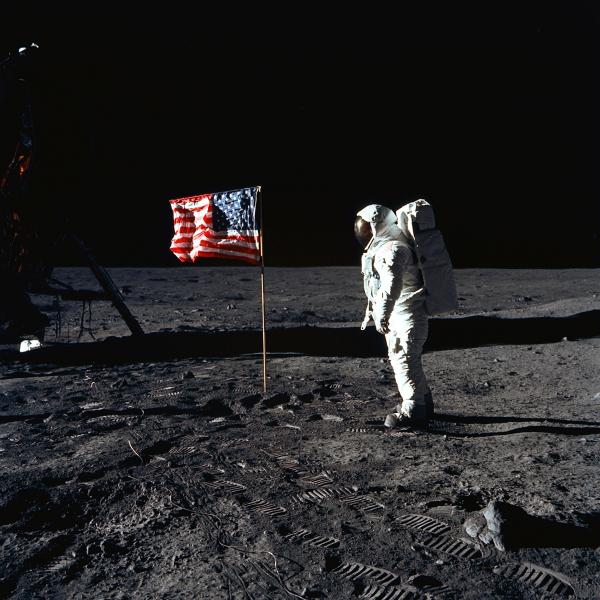
Richard Battin
Richard "Dick" Battin was an electrical engineer who worked at the MIT Instrumentation Laboratory (now Draper) for the better part of 3 decades. Battin attended MIT and received a bachelor’s degree in electrical engineering in 1945 and a Doctorate in applied mathematics in 1951. He worked in computer science at the Instrumentation Lab, helping to develop and lead the analytic and software design of the Apollo spacecraft Primary Guidance, Navigation, and Control System (PGNCS). From 1951 to 1956, Battin was an Assistant Director at the Instrumentation Lab. He left briefly but returned in 1958, just in time to work on the Apollo Program. He subsequently worked as Technical Director of Mission Development and Laboratory Associate Director.
His work in algorithms and design for both the hardware and software helped successfully propel first Apollo 8’s flight, and later the others. He worked closely with Hal Laning and provided the basis for the algorithms used on the Apollo Guidance Computer. The hardware had to fit into 1 cubic foot of space and still have enough computing power to complete needed tasks. Battin and his team made it happen, often working on ways to solve problems in real time. Throughout his career at the Instrumentation Laboratory and Draper Laboratory, Battin also taught in MIT’s Department of Aeronautics and Astronautics. His students included future astronauts Buzz Aldrin, David R. Scott, and Edgar Mitchell. His former teaching assistant Janice Voss flew on five space shuttle missions.
Battin played an integral role in making modern space exploration possible. He worked to convert the complexities of astrodynamics into approximated or solvable mathematical forms, enabling digital flight computers to develop solutions onboard missiles and spacecrafts. His work resulted in the basis of modern spaceflight guidance algorithms.
Battin retired from Draper in 1987 as Associate Head of the NASA Programs Department and continued to teach at MIT until 2010, covering much of the history and information from the Apollo program. He was awarded a student award for teaching in 1981 from MIT’s Department of Aeronautics and Astronautics, an honorary Doctorate of Science from Texas A&M University in 1999, as well as many other awards from the American Institution of Aeronautics and Astronautics.



